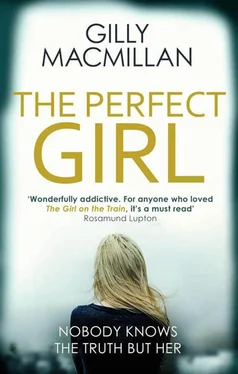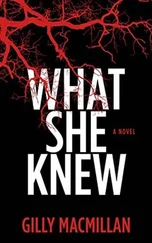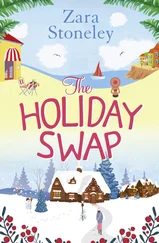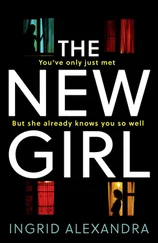‘Tessa,’ I say. ‘Tess.’ There’s a thin sheet covering her, and its sculptural white folds describe the lines of her body so closely, it’s as if somebody had carefully laid it there, like the first damp bandages of a plaster cast.
She’s alert quickly, eyes wide open; she’s heard something in my voice.
‘What?’ she says, and it’s a whisper; she hasn’t moved yet.
I want to swallow the reason I’ve woken her up, never speak of it. I don’t want to do this to her.
‘I’m so sorry,’ I say, and the words make me feel terribly, throat-clearingly formal. They steal an intimacy from us.
And in the moment after I tell Tessa that her sister is dead, and she sits up, her eyes searching mine for confirmation of the truth of what I’ve said, I have the strange realisation that she resembles Maria more closely than I’d ever noticed before.
And after a time where I hold her tight while shock takes hold of her, and I experience what I can only describe as an ache in my heart, in spite of the clichéd awfulness of that phrase, I have to let her go.
And that heartache, that hard pinch of a feeling, is not something I can indulge. It’s a shallow, oil-slicked puddle of self-indulgent emotion compared to the oceans of grief that Tess’s family have been through, and will now go through again. Just to totally overkill the metaphor: their grief could fill the Mariana Trench.
I gather up Tess’s clothes for her and she dresses silently. When she’s finished, I ask: ‘Do you want to come with me? To see Zoe? And Richard?’
His name seems to me to hover bulkily in the air between us, but it’s the least of her worries at this moment.
‘I should go to the house first,’ Tess says. ‘I need to see… and the baby…’
She can’t finish her sentence; her words are choked with shock and incomprehension. We have very little information, just that Maria died at the house, but we don’t know how. I understand that it’s up to me to look after Zoe for now, whoever she’s with.
‘Shall I drop you there?’ I ask. I’m worried about her driving.
We’re standing on the communal landing in my building now. It’s a small, bright space, with floor-to-ceiling windows over the busy commuter road below, no lift, just a functional metal staircase that winds its way down to the ground floor and the car park, and it’s airless and stifling.
‘No,’ Tess says. ‘You need to go to Zoe. I’ll come later.’ And then she’s gone, sandals clattering on the steps.
After the Concert
Lucas’s Debussy piece lasts for fourteen minutes, and his Bach is nine minutes. If you add to that the time he’ll need to mix with the audience afterwards, and then the drive home, and assume that since Mum and I took the car, Aunt Tess will be bringing them in her VW bus, which doesn’t go above 36 mph without belching out black smoke, then I think Mum and me originally had about an hour and ten minutes to talk before Lucas and Chris arrive, minus the time it took discovering Katya and Barney on the sofa and the minute that Barney could stand to be in the room with me afterwards, leaving us about fifty-eight minutes.
I wait on the sofa, stretched out, while Mum is still upstairs with Grace. My hip aches painfully from the bang against the piano and I pull up my dress to examine it and see a dark bruise forming there already. It’s tender to the touch. The sight of it makes tears spring to my eyes and I shut them, and lie back down, and try to breathe, the way I’ve been told, to blank my thoughts, to focus just on the sensation of inhales and exhales instead.
It’s hot. Our Second Chance House is a big old Victorian pile and it usually feels damply cold to me, whatever the weather, but this summer’s been so hot for so long that the heat’s gradually built up and tonight feels like a culmination of that, as if the house has finally reached a rolling boil and the air inside is hot like jazz music bouncing off a dripping ceiling in a packed-full club, or like the picture of a red sun pulsating over shimmering orange ground in the portfolio-sized photo book about deserts that my dad gave me when I was little.
From upstairs I can hear the sound of the musical mobile that hangs above Grace’s cot being wound up, then its tinkly noises begin, repetitive and familiar; soul-destroyingly plinky.
Katya appears suddenly in the doorway and looks at me without saying anything.
‘He’s outside,’ I say.
‘I know. I just texted him. Your mother is settling Grace.’
‘I know.’
Katya stands in the doorway for longer than I’m comfortable with and I lie there silently willing her to go away.
‘I tried to be your friend,’ she says and I just don’t, utterly don’t have time for this right now. She has no idea.
‘Thanks, Katya,’ I say. ‘ Spasiba .’ I say that because it really annoys her when I try to speak Russian. I get out my phone and scroll around it and try to look like I’m actually expecting to get a message from a real person.
‘Zoe, you are your own worst enemy.’
‘Original,’ I say.
‘Excuse me?’
‘I saw what you were doing.’ I suddenly feel vulnerable in my prostrate position – it’s funny how one moment you can feel glamorously hot and worn out like a panting diva in an old film and the next you realise you probably just look stupid – so I sit up and look properly at her over the back of the sofa. ‘With Barney. I saw where his hand was.’
She makes an expression that mixes disgust and sadness at my amoeba-level of existence.
‘Inappropriate,’ she says. ‘Totally. Ugh.’ She has a habit of using Americanisms, which makes her sound like she’s hosting the Eurovision Song Contest.
And I’m about to say how I’m not the one who’s inappropriate and what she did was inappropriate, and has my mum even said that she’s allowed to go out with Barney tonight anyway, but her phone pings and we’re both trained to be silent when a phone pings – this is a Major Characteristic of our Generation my Aunt Tessa says: the veneration of the ping of the phone – and so we’re both silent while she reads the text.
‘Barney’s waiting,’ she says, and she turns so fast that the wispy ends of her hair fly out in a fan shape and she’s disappeared before I can organise my riposte.
I lie back down. I’m happy she’s gone. From upstairs the circus mobile is still crunching out its tune and I know what my mother will be doing. She’ll be sitting on the floor beside Grace’s cot, being as still as possible, and stroking the baby’s forehead. She can do that for ages, and tonight it makes me feel super tense because I feel like the time we have left before Lucas and Chris get home is on one of those kitchen timers that click madly like a bomb that’s going to detonate until they make a screechy buzz that Lucas says sounds like a small bird being strangled.
And then I notice a thing. I notice that my phone browsing, which I basically did for show when Katya was looking at me, has actually turned something up. I have a notification and the sight of it makes my stomach ball up prickly and tight like a hedgehog, because there it sits, just like it used to: a number one, in a red circle, on the corner of the panop app.
It’s an app I shouldn’t even have on my phone. It’s forbidden, because, it was, according to Jason, my key worker at the Unit, and I did have to agree with him, definitely part of my downfall, because Eva Bell and Amelia Barlow and their cronies used it to torment me.
So I should have stayed away from it, but when I came out of the Unit, I couldn’t resist downloading it, just to have a look, because I was curious about what happened to the people I used to know. I left one life when I went into the Unit, and when I came out I had another life completely, in another place, and nobody would talk about the old one, and panop was my only way back there. So I downloaded the app, and sometimes I sneak a look to see what people are doing. It’s anonymous you see, if you want it to be.
Читать дальше












